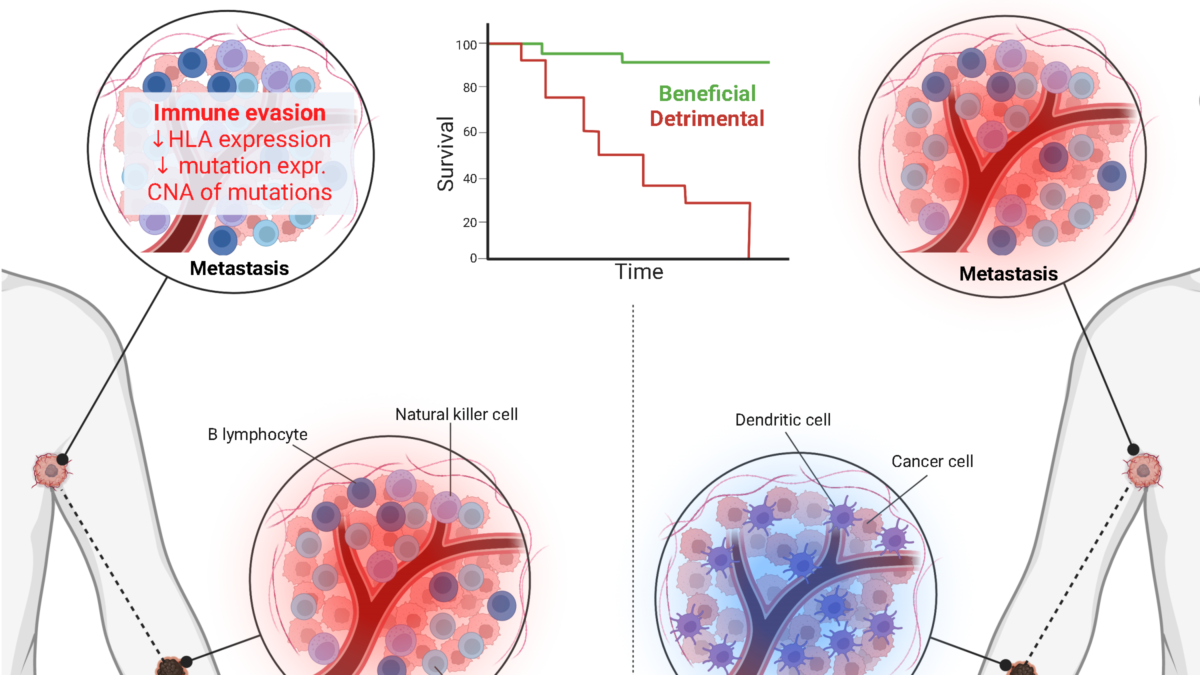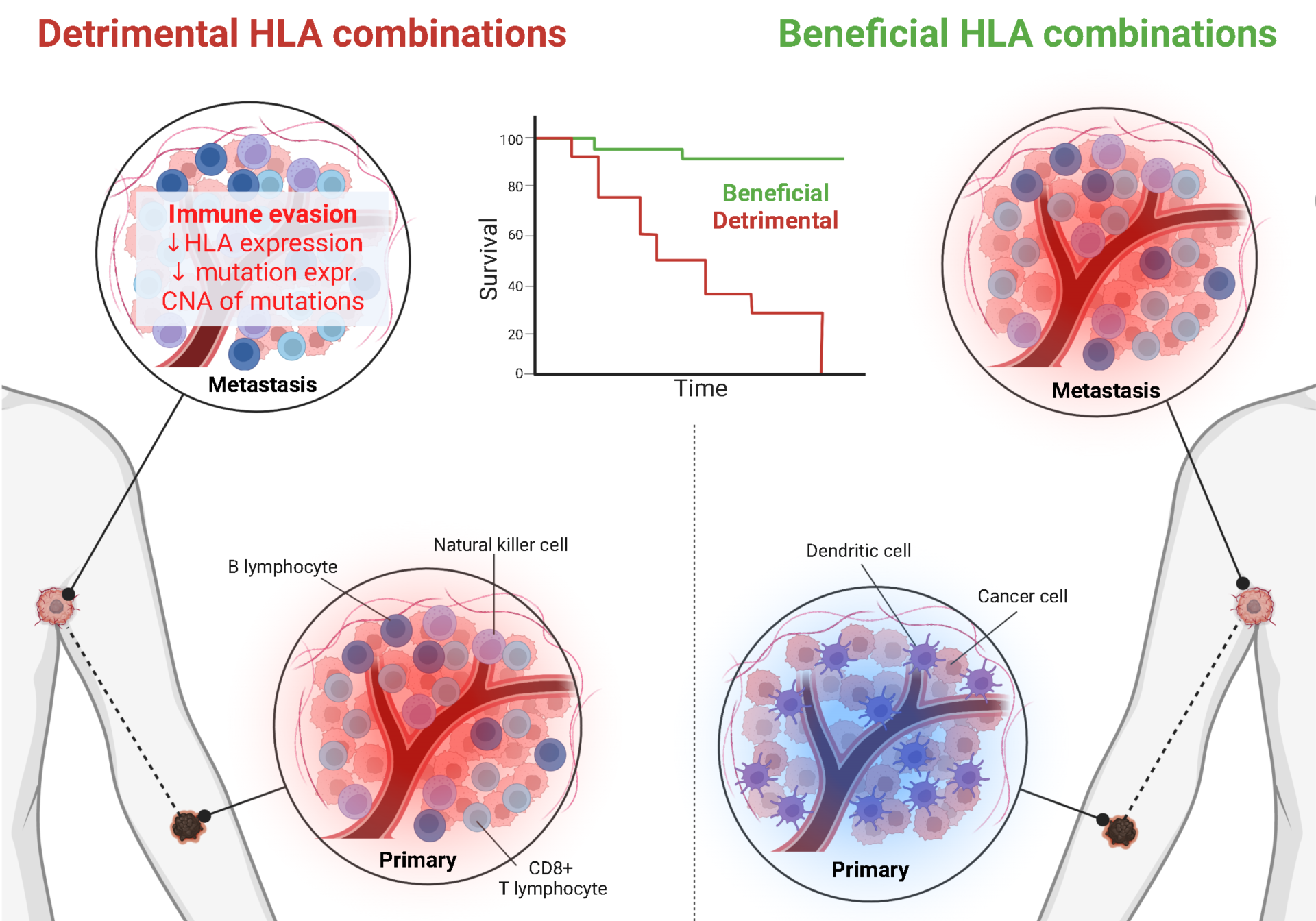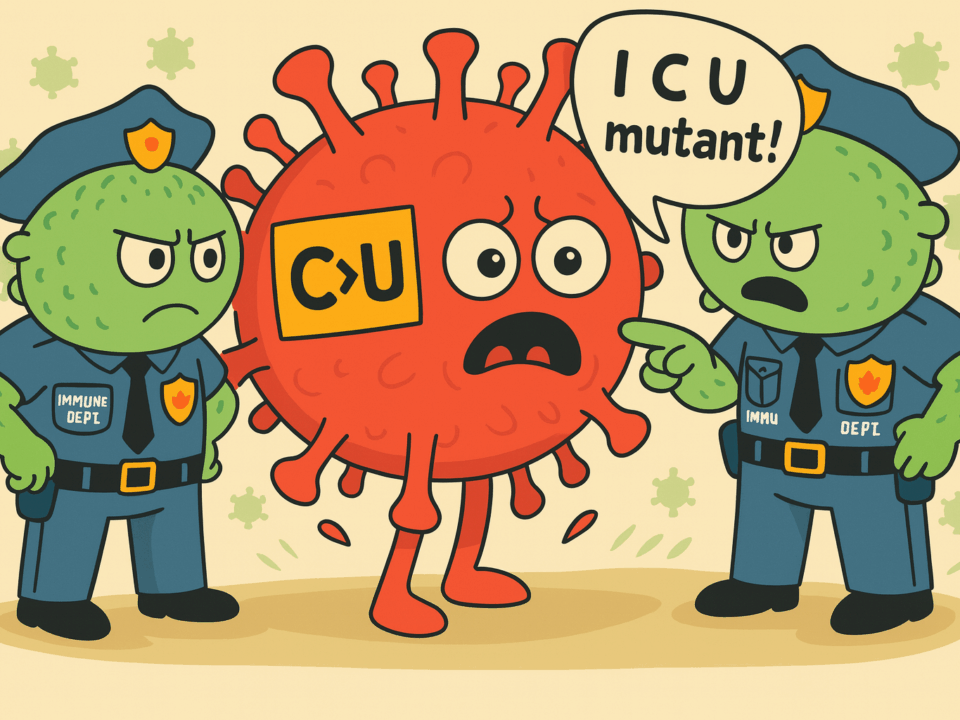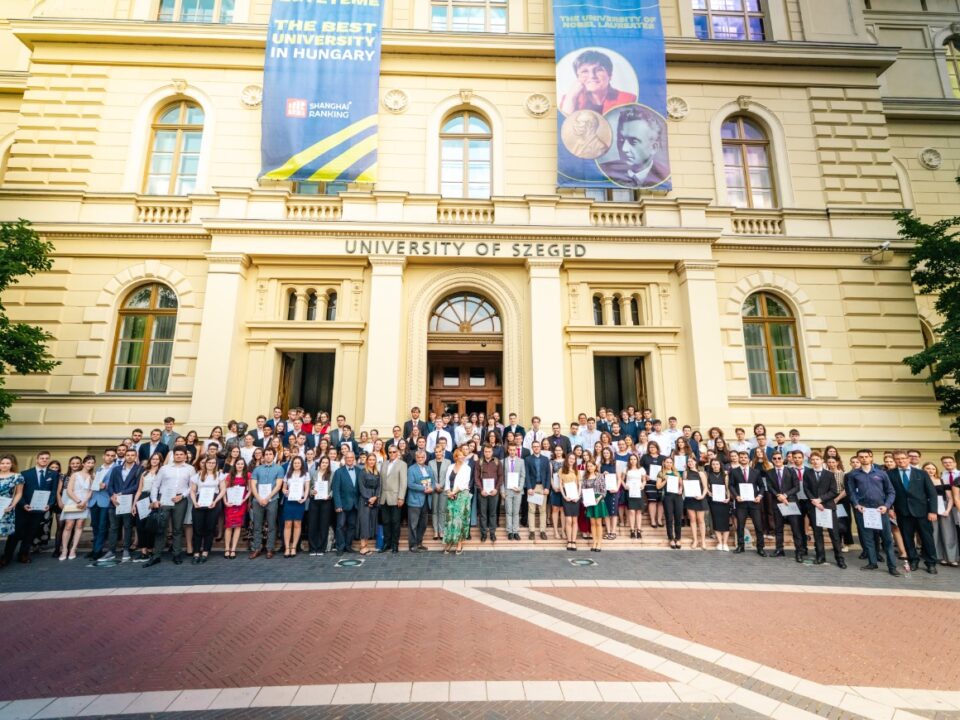
Our recent preprint is now online.
- Both HLA-I and II presentation of neoantigens is needed for effective antitumor immunity. Previous studies mainly examined the two classes separately. We studied the joint effect of variants in the two classes.
- The joint effect was much stronger and more robust than the separate effect of the two classes. We found beneficial and detrimental combinations. Both combination types presented melanoma-associated mutations effectively. Moreover, detrimental were more likely to present immunogenic mutations.
- We found that carrying detrimental combinations of HLA-I and II alleles is associated with strong immunological selection during the early stages of tumor evolution. This strong selection pressure leads to immune evasion and poor patient survival in later stages.
- On the other hand, beneficial combinations were associated with a lack of immune response during the early stage of melanoma development, but a highly effective cytotoxic immune response and long patient survival in later stages. HLA molecules in these combinations were able to present a high number of mutations that are less immunogenic and potentially accumulate at later stages of tumor development.
- Our results could help to develop personalized cancer immunotherapy strategies. Patients carrying combinations of the first group potentially do not respond to immunotherapy at the metastatic stage, but they could gain an advantage from therapy in the early stages. At the same time, patients having combinations from the second group potentially benefit from immunotherapy in later tumor stages.
- Finally, our findings could potentially draw attention to the negative trade-off of strong immunological selection pressure during cancer evolution. The phenomenon could be of great importance in many fields of cancer research.




